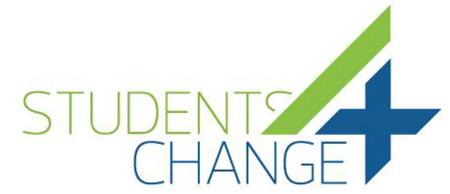Students for Change: Social Entrepreneurship in Academia
The main objective of the project Students for Change is to develop a pedagogical method for Higher Education Institutions (HEI) feasible and desirable in Latin American context, to teach and train university entrepreneurs with the necessary skills and knowledge to be active players implementing social innovations. This pedagogical method hopes to position HEIs as active actors in regional development.
European Union - Erasmus+
Students for Change is a project-based collaboration between Europe and Latin America. It is coordinated by Tecnológico de Monterrey, a Mexican university with relevant experience in project management and a long track record in social entrepreneurship. To develop and implement a viable and desirable teaching methodology and develop entrepreneurial skills with a focus on social innovation, the project draws on the experience and expertise of European universities. They take a leading role in each of the core tasks according to their skills and experience. They all work in close coordination with the Latin American universities and share the responsibility for the development of the activities. Therefore, the project is greatly enriched by the collaboration between higher education institutions from Europe, Latin America and the Caribbean. The division of work packages and responsibilities was based on the specialization, experience and expertise of each European and Latin American university in terms of research on the theoretical concept of social innovation, development of methodologies, training of faculty, evaluation and experience with mainstream policies at the university.
This project contributes to achieving its objectives by:
- Deepening academic research on social innovation
- Developing social innovation competencies in curricula
- Strengthening the social responsibility programs of selected institutions
- Improving teaching skills and cultural awareness of participants
- Increasing the mobility of staff and students in both Latin American and European partner countries
- Developing a knowledge base for social innovation
- Promoting further opportunities for collaboration among staff at each participating institution
- Coordinator: Instituto Tecnológico y de Estudios Superiores de Monterrey (ITESM) Mexico
- Universidad de Colima (UCOL) Mexico
- Universidad de Talca (UTALCA) Chile
- Pontificia Universidad Católica de Valparaíso (PUCV) Chile
- ASHOKA Chile
- Pontifical Catholic University of Rio Grande do Sul (PUCRS) Brazil
- Pontifícia Universidade Católica do Rio de Janeiro (PUC-Rio) Brazil
- Universidad de Costa Rica (UCR) Costa Rica
- Instituto Tecnológico de Costa Rica (ITCR) Costa Rica
- Universidad de Caldas (UCALDAS) Columbia
- Corporación Universitaria Minuto de Dios (UNMINUTO) Columbia
- Universitat Politècnica de València (UPV) Spain
- Universidad del País Vasco/ Euskal Herriko Unibertsitatea (UPV/EHU) Spain
- Universidade de Aveiro (UA) Portugal
- Université Grenoble Alpes (UGA) France
One of the main objectives of the project is to integrate social innovation into the curricula and learning environments at universities in Latin America. Another objective is to improve the quality and relevance of academic programs in terms of the skills that should be developed by students to solve the social problems of the region.
Accordingly, the project has the following objectives:
- Implement educational models that promote the training of entrepreneurial skills and social innovation.
- Provide strategies for teacher training
- Develop strategies and methodological tools useful for programs and academic projects (teachers and students) to better understand the needs of communities and improve collaborative and sustainable solutions to identified problems
- Develop a model for monitoring and assessing the development of social entrepreneurship skills in curricula
- Design and implement policy and institutional processes to support administration, academia, and management to promote social innovation in Latin American universities
- Forming alliances between Latin American and European universities that seek to promote social entrepreneurship strategies
- Strengthening existing social incubators at participating universities and their links to student learning and curricula to create a better environment
- Improve the effectiveness and sustainability of projects
The project is divided into five phases, each of which concludes with an international meeting of participating universities:
Phase 1 - State of the Art in Entrepreneurship Programs and University Group Formation: Three different groups of universities (Caribbean, Europe and Latin America) will be formed. The goal is to develop educational and entrepreneurship programs in each of the participating universities and their respective countries. Phase 2 - Methods for Entrepreneurship and Social Innovation: the project focuses on the development of methods to promote entrepreneurship and social innovation in the curricula and institutional culture of universities, especially in Latin America. Phase 3 - Training of faculty for pilot projects and selection of participating faculty for the pilot projects: Each HEI will select five faculty to participate in a pilot project consisting of introducing entrepreneurship and social innovation learning methods in their subjects and courses. Phase 4 - Implementation and Evaluation of Pilot Projects: During the implementation phase, visits to the pilot projects will take place. The results will be presented at a meeting in Talca, Chile. Phase 5 - Expansion and institutionalization of entrepreneurship and social innovation programs: The final phase of the project focuses on institutionalizing entrepreneurship programs. Participating universities are working on how to institutionalize entrepreneurship and social innovation programs in their curricula so that they have a broader curricular impact.




![[Translate to English:] [Translate to English:]](/storages/zentraler_bilderpool/_processed_/a/f/csm_Kontakt_b86e8d8ecc.png)
![[Translate to English:] [Translate to English:]](/storages/sfs-sowi/_processed_/6/c/csm_Glasfront_sfs_Header_eae6d325d3.jpg)
